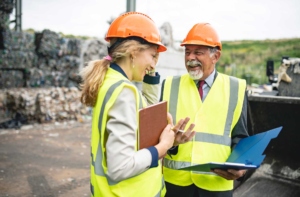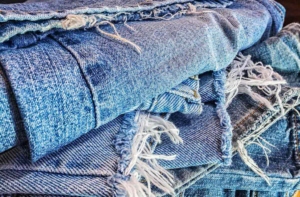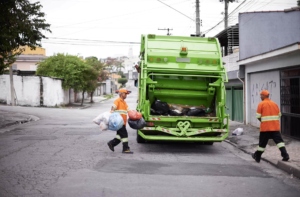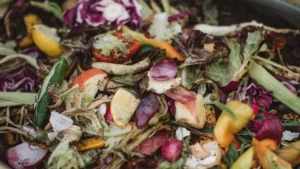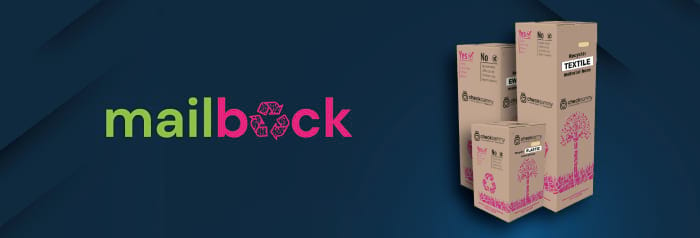Beyond the Bin: Exploring the Depths of Recycling
Recycling is next to sustainability in our modern world. While most of us are aware of the importance of recycling plastic, paper, and glass, there is a wealth of unknown opportunities for recycling that can significantly impact the environment. In this blog post, we will explore residential recycling and unveil the surprising and often overlooked areas that can help us reduce waste on a larger scale and create a more sustainable future.
The World of E-Waste Recycling
Electronic waste, or e-waste, poses a growing concern in our increasingly technologically advanced society. The improper disposal of devices has great consequences, including the leaking of toxic substances into the environment. Recycling e-waste is essential to mitigate the environmental impacts. Inside our smartphones, laptops, and other gadgets are valuable components such as metals, circuit boards, and batteries that can be recycled and reused once they hit their end of life. Through participating in local e-waste recycling programs, we not only contribute to the proper disposal of e-waste but also to the conservation of resources and the reduction of harmful substances in our environment and ecosystems.
Unveiling the Secrets of Textile Recycling
Textile waste is an overlooked area of recycling, yet it presents a significant environmental challenge. Discarded clothing, worn-out fabrics, and outdated textiles add to landfills and the ongoing depletion of natural resources. Textile recycling provides a sustainable solution to an age-old problem. Recycling textiles involves more than just donating unwanted clothing; it also encompasses the reusing, repurposing, and upcycling of textiles. Supporting local textile recycling centers and initiatives that promote sustainable fashion also allows us to contribute to a greener, more sustainable textile industry. Textile production requires vast amounts of water, energy, and raw materials, including cotton, which is highly reliant on pesticides and fertilizers. Recycling textiles helps in reducing the need for new fabric production. Additionally, textile recycling promotes a circular economy in a world overrun with consumerism. This, in turn, reduces the demand for new clothing and decreases the amount of textile waste that ends up in landfill.
Food Waste Recycling: From Scraps to Solutions
Food waste is a global problem with damning implications for the environment. The decomposition of food waste in landfills creates and emits methane, a potent greenhouse gas. Recycling food waste is a critical step in mitigating this problem, and by taking actions to divert food waste from landfills, we reduce greenhouse gas emissions and create a valuable resource: compost. Composting is a natural process that transforms food scraps into nutrient-rich compost. This enriches the soil and supports sustainable agriculture. Composting can be done through several methods, including backyard composting, community-based initiatives such as subsistence farming, anaerobic digestion, and vermicomposting. Adopting these practices can contribute to a more sustainable food system and make a positive impact on our environment. Food waste recycling, however, can be done using various methods, with each offering unique benefits and applications. The three most common methods are:
Composting: As explained, this is a natural process that involves the decomposition of organic materials, including food waste, into nutrient-rich compost. In traditional composting, organic waste is combined with yard trimmings, leaves, and other carbon-rich materials in a controlled environment. Microorganisms break down this waste, which generates heat, thereby converting it into compost. This process is oxygen-heavy (aerobic conditions) and takes several weeks to months to complete. Composting can be done on a small scale at home or on a larger scale in community composting facilities or labs. The resulting compost can be used alongside soil to enrich soil fertility, improve moisture retention, and promote plant growth.
Anaerobic Digestion: Anaerobic digestion involves the breakdown of organic waste in the absence of oxygen. In this process, food waste is placed in a digester, a sealed, oxygen-free environment. Naturally occurring bacteria break down this waste and produce biogas (which is a mixture of methane and carbon dioxide) and a nutrient-rich digestate. The biogas can be harnessed and used as a renewable energy source for electricity and heat generation, while the digestate can be used as a fertilizer or soil supplement. This kind of digestion is commonly used in larger-scale operations like industrial or municipal facilities due to the specialized equipment and infrastructure it requires
Vermicomposting: Vermicomposting utilizes worms, typically red worms, to break down organic waste. These worms consume food waste and excrete nutrient-rich castings, known as vermicompost. This method is ideal for small-scale or home composting and requires minimal space and equipment. Vermicomposting is a popular option for those living in urban environments or with limited outdoor space. The resultant vermicompost is highly fertile and can be used as a soil amendment or potting mix, improving soil health and promoting plant growth. Each of these methods offers effective ways to recycle food waste, helping to mitigate waste reduction and promote resource conservation and environmental sustainability.
It is essential for all stakeholders in Mother Earth to play an active role in exploring the various aspects of recycling in our own lives. Whether it’s responsibly disposing of electronic devices, embracing sustainable fashion practices, or adopting composting, we have the power to make a big difference by changing menial habits in our everyday lives. Take action by supporting local recycling programs, engaging in community-based initiatives, and spreading awareness about the importance of recycling. CheckSammy helps you access a range of services and solutions to support your recycling efforts. From e-waste recycling to textile and food waste management, we offer comprehensive support to help you navigate the world of recycling and sustainability.
Join us in our mission to create a world where recycling knows no limits and our planet thrives.
See Our Services
Create a custom solution to meet your waste and sustainability goals. Contact us today!
Continue reading
Dive deeper into the CheckSammy Blog by reading one of our posts below
Feeling the Pain of Higher Resident Turnover? Apartment Junk Removal Can Help
If you’re a property manager, you’ve probably had a significant increase in tenant turnover over the last couple of years. So it’s no wonder apartment junk removal may be top of mind for you right now. There are several reasons for this shift. For one, the housing market is on fire right now. In 2020 […]
Read More About Feeling the Pain of Higher Resident Turnover? Apartment Junk Removal Can HelpSetting Up a Community E-waste Recycling Program
E-waste is the fastest-growing municipal waste stream according to the EPA, yet e-waste recycling isn’t keeping pace. In fact, only 12.5% of all e-waste is recycled, reports the EPA. Starting a community e-waste recycling program is a terrific way to ensure hazardous e-waste, like lithium-ion batteries, doesn’t end up in your community’s landfill. Creating an […]
Read More About Setting Up a Community E-waste Recycling ProgramWaste Management’s Role in the Circular Economy
Establishing a waste management program for your business or community is one of the best ways you can contribute to the circular economy. Here’s everything you need to know about waste management’s role in the circular economy (and how to get involved). What Is the Circular Economy? Our current economic model is all about taking […]
Read More About Waste Management’s Role in the Circular Economy5 Reasons to Consider a Textile Recycling Program for Your Organization
Americans sent more than 17 million tons of textiles to landfills in 2018, a volume that is only increasing every year, reports the Environmental Protection Agency. When you think about the fact that it can take over 200 years for textiles to decompose, it’s easy to grasp how large textile waste’s contribution is to the […]
Read More About 5 Reasons to Consider a Textile Recycling Program for Your Organization8 Benefits of Environmentally Friendly Power Washing Services
If you’re into maintaining the curb appeal of your business or home, then you’ve probably heard of pressure washing. Pressure cleaning involves using high-pressure water spray to remove grime, mold, dust, paint, mud, and other junk from objects or surfaces. Many people worry that pressure washing isn’t good for the environment, but this couldn’t be […]
Read More About 8 Benefits of Environmentally Friendly Power Washing ServicesWhy Our Customers Love Our Full-Service Junk Removal
If you’re looking for full-service junk removal services, you’ve come to the right place. CheckSammy is a one-stop shop for all your junk removal and sustainability needs. From our affordability, simplicity, and unrivaled turnaround times to our innovative sustainability solutions and patented technology and data, it’s clear why some of North America’s biggest companies choose […]
Read More About Why Our Customers Love Our Full-Service Junk RemovalTips for a Stress-Free Move From An Eco-Friendly Junk Removal Company
What does an eco-friendly junk removal company know about moving? Quite a lot, actually. Moving can be an especially chaotic time. You have to pack everything up, get rid of unwanted items, clean your property, load everything up, and move your things to your new location. That doesn’t even include the unpacking and resettling period. […]
Read More About Tips for a Stress-Free Move From An Eco-Friendly Junk Removal CompanyCollege Junk Removal Tips for Student Move-In Day
As the new school year gears up, colleges across the country are looking for ways to clean up their campuses before the new year begins, and many of them want to do so sustainably. College junk removal isn’t easy, though, especially around move-in week—and when trying to do so sustainably. As students move in and […]
Read More About College Junk Removal Tips for Student Move-In Day8 Items Hospitality Businesses May Not Know They Can Recycle
One hotel guest produces 2.5 pounds of trash every single day. Just a single hotel room produces around one cubic yard of waste each month, which totals 200 gallons of waste per room every month. Most of this waste goes straight to the landfill, even though research shows that up to 60% of it is […]
Read More About 8 Items Hospitality Businesses May Not Know They Can Recycle

